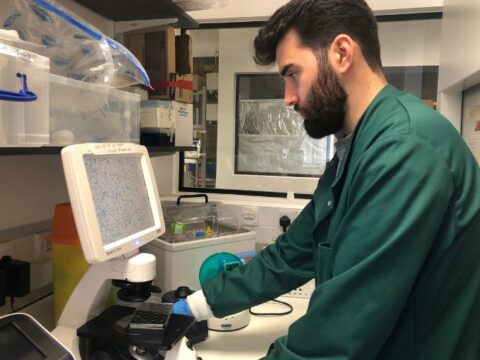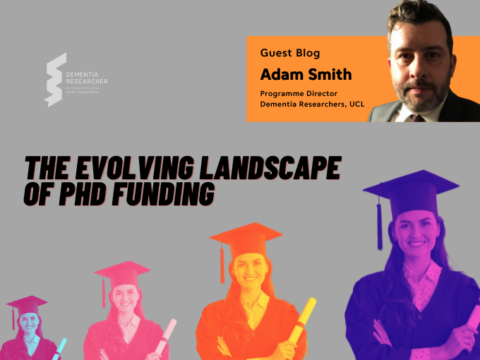Hear from international experts on recent discoveries and promising pathways to understand, monitor and treat movement disorders. We are also delighted to welcome plenary speaker Jose Obeso, Professor of Neurology, CEU San Pablo University Madrid ‘From neuronal vulnerability to therapy in Parkinson’s disease – Current possibilities.’
The UCL Movement Disorders Centre (MDC) was established in 2017 with the goal of advancing scientific research and applying it toward better patient care.
The UCL Movement Disorders Centre (MDC) brings together patients, clinicians, data, discovery research programmes and experimental medicine trials in order to make the next key breakthroughs for Parkinson’s disease, dystonia and other movement disorders. Through our world-class research, we aim to gain a better understanding of the causes, effects, biological mechanisms and treatment of movement disorders. Our members are UCL clinical academics and movement disorders specialist clinicians working across affiliated hospitals: University College London Hospital (UCLH), The National Hospital for Neurology and Neurosurgery at Queen Square and the Royal Free London Hospital.
The centre is part of the Department of Clinical and Movement Neurosciences of the UCL Queen Square Institute of Neurology. The Department undertakes world-leading basic and clinical research across the spectrum of movement disorders, their causes and treatments.
UCL Queen Square Movement Disorders Centre
00:00:00 – Start
00:00:03 – Opening & introduction: Prof. Sonai Gandhi – UCL IoN
00:02:11 – Mrs. Omotola Thomas – Parkinson’s Africa
00:25:00 – Session 1: Genetics – Chair: Dr. Francesca Magrinelli
00:25:24 – Prof. Nick Wood, UCL QS IoN: LRRK2 and PINK1: 20 years later
00:48:00 – Prof. Huw Morris, UCL QS IoN: Understanding Parkinson’s progression
01:07:33 – Session 2: Biomarkers – Chair: Dr. Christian Lambert
01:07:51 – Dr. Cynthia Sandor, Imperial College London: Seeing Parkinson’s disease coming using digital biomarkers
01:29:07 – Prof. Rimona Weil, UCL: MRI to predict dementia in Parkinson’s disease
01:49:22 – Session 3: Therapeutic Targets – Chair: Prof. Tony Schapira
01:49:35 – Prof. Frances Platt, University of Oxford: Altered sphingolipid metabolism in Parkinson’s disease
02:12:03 – Dr. Esther Sammler, Dundee University: LRRK2 kinase signalling in Parkinson’s diseases
02:36:34 – Plenary Presentation – Chair: Prof. Tony Schapira
02:36:54 – Prof. Jose Obeso, CEU San Pablo University Madrid: From neuronal vulnerability to therapy in Parkinson’s disease – Current possibilities
03:16:02 – Session 4: Rare Movement Disorders – Chair: Prof. Rimona Weil
03:16:14 – Dr. Francesca Magrinelli, UCL: A new gene for early-onset Parkinson’s disease/parkinsonism: From gene discovery to preliminary mechanistic data
03:36:41 – Session 5: Clinical Trials – Chair: Prof. Anette Schra
03:37:23 – Dr. Marco Toffoli, UCL: GBA1 as a target for disease modifying treatment in Parkinson disease: the ASPro-PD trial
03:52:41 – Prof. Tom Foltynie, UCL: The Edmond J. Safra accelerating clinical trials in Parkinson’s disease initiative
04:13:55 – Dr. Harith Akram, UCL: Focused ultrasound thalamotomy for tremor
04:35:37 – Session 6: Diagnostics – Chair: Prof. Tom Warner
04:35:50 – Dr. Edwin Jabbari, UCL: Using seed amplification assays in the diagnosis of parkinsonian disorders
04:53:42 – Dr. Christian Lambert, UCL: Probabilistic diagnostics for Parkinsonian disorders
05:10:44 – Closing Remarks: Prof. Tony Schapira, UCL






